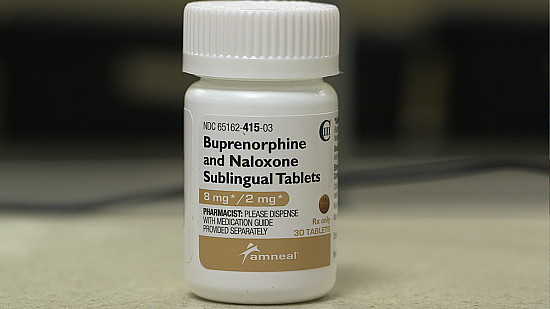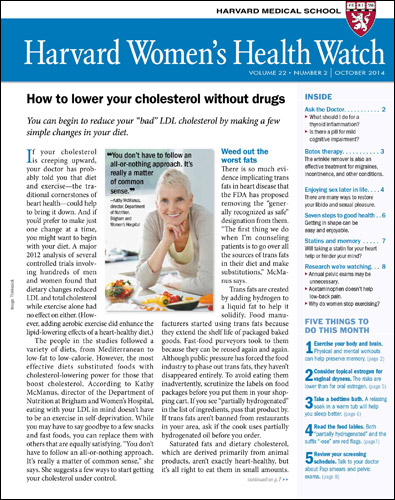Anorexia, bulimia, and other eating disorders in midlife and beyond

Most people think that eating disorders afflict only adolescents and young women. Not so—they plague older women, too, and may be shrouded in even greater shame and secrecy. Many women don’t seek help, especially if they fear being forced to gain weight or stigmatized as having a “teenager’s disease.”
As we write in the February 2012 Harvard Women’s Health Watch, clinicians are reporting an upswing in requests from older women for help with eating disorders. For some of these women, the problem is new; others have struggled with anorexia, bulimia, binge eating, or another eating disorder for decades.
Surveys in Australia have charted a tripling or quadrupling of the percentage of people age 65 and older with an eating disorder. Researchers at Oregon Health & Science University have found that women ages 65 to 80 were just as likely as young adult women to feel fat or concerned about their body shape.
This dissatisfaction matters. People with eating disorders are usually intensely unhappy about their body shape and size. A negative body image can suggest or prefigure a full-blown eating disorder—or what doctors call a subclinical problem, in which a woman never becomes alarmingly thin but organizes her life around food and weight control.
Eating problems at midlife and beyond stem from a variety of causes. These range from grief and divorce to illness and shifting priorities. Heightened awareness of an aging body is another contributor. This can be especially problematic when a woman returns to school or work, or needs to keep working past the traditional retirement age, especially in fields where looks may be important.
“As our society values youth and as baby boomers reinvent what it means to be middle-aged, there are growing social forces that can undermine older women’s self-esteem and potentially lead to body dissatisfaction,” psychiatrist Anne E. Becker told us. “That, combined with health concerns about obesity, can make people feel bad about their bodies and, in turn, could result in eating strategies that undermine well-being,” says Becker, who directs the Eating Disorders Clinical and Research Program at Massachusetts General Hospital and president of the Academy for Eating Disorders.
Food and you
Could concerns about your body image or your relationship with food be crowding out other important parts of your life? Take a look at the questions below. If you answer yes to one or more of them, try to shift your conversations and mental energy away from food and body awareness. If this proves difficult, consider consulting a mental health professional.
- Do you worry about your body and aging more than your friends do? What efforts do you make to hide these changes?
- If you had the choice between living an extra five years and attaining your perfect weight, would you pick attaining your perfect weight?
- Do you and your friends spend a lot of time discussing diets, weight, your looks, gym routines, etc.?
- Does the number on the scale determine your mood for the day?
- Do you spend an inordinate amount of time planning what to eat and not to eat and how to get enough exercise?
- Do you gravitate toward health regimens that involve purging or restricting food—for example, going gluten- or yeast-free, becoming a vegan, fasting, or doing colonics or cleanses?
You can read the complete article on eating disorders in midlife and beyond on the Harvard Women’s Health Watch Web site. It covers types of eating disorders, explores possible causes, looks at treatment options, and provides resources for more information.
If you developed an eating disorder in middle age, let us know how you noticed it and how you are handling it.
About the Author

Carolyn Schatz, Former Editor, Harvard Women's Health Watch
Disclaimer:
As a service to our readers, Harvard Health Publishing provides access to our library of archived content. Please note the date of last review or update on all articles.
No content on this site, regardless of date, should ever be used as a substitute for direct medical advice from your doctor or other qualified clinician.
















